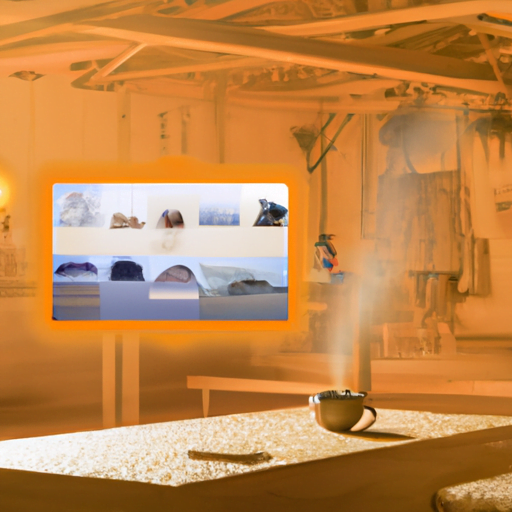So, you’re considering off grid living, huh? That’s exciting! But I can imagine you might have some concerns, especially when it comes to heating your home. After all, traditional heating options can be quite expensive, and when you’re living off grid, cost-effectiveness becomes even more important.
But fear not, my friend! There are actually several affordable heating options for off grid living that won’t break the bank. In fact, in an upcoming article, we’ll delve into the details of these options and help you determine the best fit for your needs.
We’ll explore different alternatives such as wood stoves, pellet stoves, and even passive solar heating. We’ll discuss the pros and cons of each option, their efficiency levels, and the initial costs involved. By the end of the article, you’ll have a solid understanding of the most affordable heating options for off grid living, and you’ll be one step closer to making your sustainable dream a reality. Stay tuned! Off grid living refers to living in a self-sufficient manner without relying on public utilities for electricity, water, and heating. This lifestyle is becoming increasingly popular as people seek independence from the grid and strive to reduce their environmental footprint. However, one of the key challenges of off grid living is finding affordable heating options that can keep you warm during the colder months without breaking the bank.
There are several advantages to living off the grid. Firstly, it allows you to break free from the rising costs of public utilities. By generating your own power and using alternative heating options, you can significantly reduce your monthly expenses. Additionally, off grid living promotes self-sustainability and reduces reliance on fossil fuels, making it an environmentally friendly choice. Finally, living off the grid offers a sense of freedom and independence, as you are not bound by the limitations and regulations of traditional utility providers.
Despite these advantages, off grid living does come with its own set of challenges. One of the primary challenges is finding affordable heating options that are both effective and sustainable. Without access to natural gas or electric heating, off grid homeowners must explore alternative options to keep their homes warm.
Traditional heating options have been used for centuries and are still prevalent today. Three common traditional heating options are wood-burning stoves, propane heaters, and kerosene heaters.
Wood-burning stoves are a popular choice among off grid homeowners due to their affordability and availability of fuel. They can provide both heat and a means for cooking, making them versatile in an off grid lifestyle. However, wood-burning stoves require regular maintenance and can produce smoke, which may be a concern for those with respiratory issues.
Propane heaters are another traditional heating option commonly used off grid. Propane is readily available and relatively affordable, making it a viable option for off grid living. These heaters are easy to use and require minimal maintenance. However, propane is a non-renewable fossil fuel, and its affordability may vary depending on location and availability.
Kerosene heaters are compact and portable, making them suitable for off grid living. They provide instant heat and are relatively inexpensive to purchase. However, kerosene can be more expensive than other fuel options and may emit an odor that some find unpleasant.
While traditional heating options have their advantages, renewable energy heating options offer a more sustainable and long-term solution for off grid living. These options include solar heating, wind power heating, hydro power heating, biomass heating, and geothermal heating.
Solar heating utilizes the sun’s energy to heat water or air, which can then be used to warm the home. Solar panels capture sunlight and convert it into usable energy. This renewable energy source is abundant and free, making it an attractive option for off grid homeowners. However, solar heating systems can be costly to install initially, and their effectiveness may be limited in areas with limited sunlight.
Wind power heating harnesses the power of the wind to generate electricity, which can then be used for heating purposes. Wind turbines capture the kinetic energy of the wind and convert it into electrical energy. While wind power heating systems require a significant upfront investment, they can be highly effective in windy areas and offer long-term savings on energy costs.
Hydro power heating utilizes the energy of flowing water to generate electricity. Small-scale hydroelectric systems can be installed in off grid homes near streams or rivers to provide a constant and reliable source of energy for heating. However, hydro power heating may not be suitable for all locations, and its installation can be complex and costly.
Biomass heating involves burning organic materials, such as wood pellets or agricultural waste, to produce heat. This renewable energy option is cost-effective and helps reduce waste. However, biomass heating systems require regular maintenance and may produce emissions that need to be properly managed.
Geothermal heating utilizes the stable temperature of the earth to provide heating and cooling for homes. Pipes are installed underground, and a geothermal heat pump transfers the heat to the home. Geothermal heating is highly efficient and can significantly reduce energy consumption. However, it requires extensive installation and may not be feasible in all geographic locations.
When choosing the most affordable heating option for off grid living, several factors need to be considered. These include the initial cost of installation, ongoing maintenance requirements, energy efficiency, long-term savings, environmental impact, and practicality.
The initial cost of installation is an important consideration as it can vary greatly depending on the chosen heating option. Wood-burning stoves and pellet stoves have relatively low upfront costs, while renewable energy heating options require a larger investment.
Maintenance requirements should also be taken into account. Traditional heating options such as wood-burning stoves and pellet stoves require regular cleaning and maintenance to ensure proper functionality. Renewable energy heating options generally have fewer maintenance requirements but may require occasional inspections or repairs.
Energy efficiency is another factor to consider. Heating systems that use renewable energy sources tend to be more energy-efficient, resulting in lower energy consumption and reduced heating costs over time. Traditional heating options may be less energy-efficient and require more fuel, which can increase costs.
Long-term savings are an important consideration, particularly for off grid homeowners who want to minimize their monthly expenses. Renewable energy heating options, despite their higher upfront costs, can offer significant long-term savings on energy bills. Traditional heating options may be more affordable initially, but their ongoing fuel costs should be carefully evaluated.
The environmental impact of the chosen heating option should also be considered. Renewable energy heating options have a smaller carbon footprint and contribute to a more sustainable lifestyle. Traditional heating options, particularly those that rely on fossil fuels, emit greenhouse gases and contribute to air pollution.
Practicality is an essential factor when choosing a heating option for off grid living. Factors such as the availability and accessibility of fuel sources should be taken into account. Wood-burning stoves rely on the availability of firewood, while renewable energy heating options depend on the availability of sunlight, wind, water, or biomass.
In terms of installation and maintenance, different heating options have different requirements. Wood-burning stoves and pellet stoves require proper ventilation and regular cleaning to prevent fire hazards. Renewable energy systems, on the other hand, may require professional installation and occasional maintenance to ensure optimal performance.
The cost of installation and maintenance is another consideration. Traditional heating options generally have lower installation costs, as they do not require complex systems or professional installation. Renewable energy systems, on the other hand, may require a higher initial investment, but their maintenance costs are generally lower in the long run.
The availability and accessibility of fuel sources are crucial for off grid living. Wood-burning stoves and pellet stoves rely on the availability of firewood or wood pellets, which may not be easily accessible in all areas. Renewable energy heating options rely on the availability of natural resources such as sunlight, wind, water, or biomass, which may vary depending on location.
Compatibility with other off grid systems is also an important consideration. Off grid homeowners often rely on multiple systems, such as solar power systems, wind power systems, or hydro power systems, to meet their energy needs. The chosen heating option should be compatible with these systems to ensure seamless integration and efficient energy use.
In conclusion, off grid living offers numerous advantages, including reduced utility costs, self-sustainability, and independence. However, finding affordable heating options can be a challenge. Traditional heating options such as wood-burning stoves, propane heaters, and kerosene heaters are commonly used off grid but have their limitations. Renewable energy heating options, such as solar heating, wind power heating, hydro power heating, biomass heating, and geothermal heating, offer a more sustainable and long-term solution, albeit with higher upfront costs.
When choosing the most affordable heating option for off grid living, it is important to consider factors such as the initial cost of installation, ongoing maintenance requirements, energy efficiency, long-term savings, environmental impact, and practicality. The availability and accessibility of fuel sources should also be taken into account, as well as compatibility with other off grid systems.
By carefully evaluating these factors, off grid homeowners can choose the heating option that best suits their needs and budget. Whether it be through traditional methods, renewable energy sources, or alternative heating options, finding the most affordable heating solution is essential for a comfortable and sustainable off grid lifestyle.





